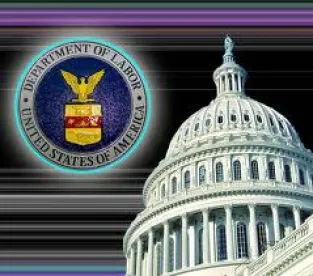On April 9, 2021, the U.S. Department of Labor (DOL) rescinded the Trump-era enforcement practice of abstaining from seeking liquidated damages in connection with pre-litigation investigations and settlements of wage and hour claims. In Field Assistance Bulletin No. 2021-2, issued by the Wage and Hour Division’s Principal Deputy Administrator, Jessica Looman, the agency announced that it would revive its policy of seeking liquidated damages from employers in such circumstances. So how did we get here?
Liquidated Damages 101
The original version of the Fair Labor Standards Act (FLSA)—signed by President Franklin D. Roosevelt on June 25, 1938 and a centerpiece of New Deal legislation—contained the following language, which appears verbatim today in 29 U.S.C. § 216(b):
Any employer who violates the provisions of section 6 [minimum wage] or section 7 [overtime] of this Act shall be liable to the employee or employees affected in the amount of their unpaid minimum wages, or their unpaid overtime compensation, as the case may be, and in an additional equal amount as liquidated damages.
In section 11 of the Portal-to-Portal Act of 1947 (29 U.S.C. § 260), Congress amended the FLSA to add a specific safe harbor against liquidated damages claims:
In any action … to recover unpaid minimum wages, unpaid overtime compensation, or liquidated damages, under the [FLSA], if the employer shows to the satisfaction of the court that the act or omission giving rise to such action was in good faith and that he had reasonable grounds for believing that his act or omission was not a violation of the [FLSA], the court may, in its sound discretion, award no liquidated damages or award any amount thereof not to exceed [the amount of their unpaid minimum wages, or their unpaid overtime compensation, as the case may be].
The DOL has the authority investigate alleged violations of the FLSA (see 29 U.S.C. § 211(a)), as well as to supervise settlements of FLSA claims and litigate against employers charged with violating the statute (see 29 U.S.C. § 216(c)).
Trump DOL Abandons LDs… in Most Cases
In May 2020, President Donald J. Trump signed Executive Order (EO) 13924, which required the DOL and other executive agencies to remove certain regulatory and enforcement barriers to economic prosperity in an effort to help defeat the impact of COVID-19 on the American economy. As we reported last June, in response to EO 13924—and noting that investigations involving liquidated damages take 28% more time than those involving back wages only—WHD announced in FAB 2020-1 that, effective July 1, 2020, the agency would no longer assess pre-litigation liquidated damages if any of the following circumstances exist:
-
there is no evidence of bad faith or willfulness;
-
the employer’s explanation for the violation shows that it was the result of a bona fide dispute of unsettled law under the FLSA;
-
the employer has no previous history of violations;
-
the matter involves individual coverage only;
-
the matter involves state and local government agencies or other non-profits;
-
the matter involves “complex” exemptions under sections 13(a)(1) or 13(b)(1) of the FLSA (29 U.S.C. §§ 213(a)(1), (b)1); or
-
the matter involves State and local government agencies or other non-profits.
In addition, each request for pre-litigation liquidated damages under the FLSA would have to be submitted to and approved by both the WHD Administrator and the Solicitor of Labor (or either of her designees) on an individual basis.
It’s 2021, and LDs are back!
In FAB 2021-2, WHD rescinds FAB 2020-1 and announces a “return to pursuing liquidated damages from employers … in its pre litigation investigations provided that the Regional Solicitor [of Labor] (RSOL) or [their] designee concurs with the liquidated damages request.” By contrast, “[l]iquidated damages shall not be assessed by WHD where the employer has set forth credible evidence of a good faith defense or the where the RSOL deems the matter inappropriate for litigation.”
Takeaways
Given the statutory safe harbor for good faith violations, employers should be prepared to negotiate against liability for liquidated damages in DOL investigations where the facts support the argument, just as they would in private civil litigation. That said, this week’s news is yet another sign that we are in a new federal administration with decidedly different priorities than its predecessor. Businesses that enjoyed the DOL’s more laissez-faire approach to regulation and enforcement over the last four years should continue to keep a close watch on what the agency does in the coming months to implement President Biden’s openly pro-worker agenda.



 />i
/>i

